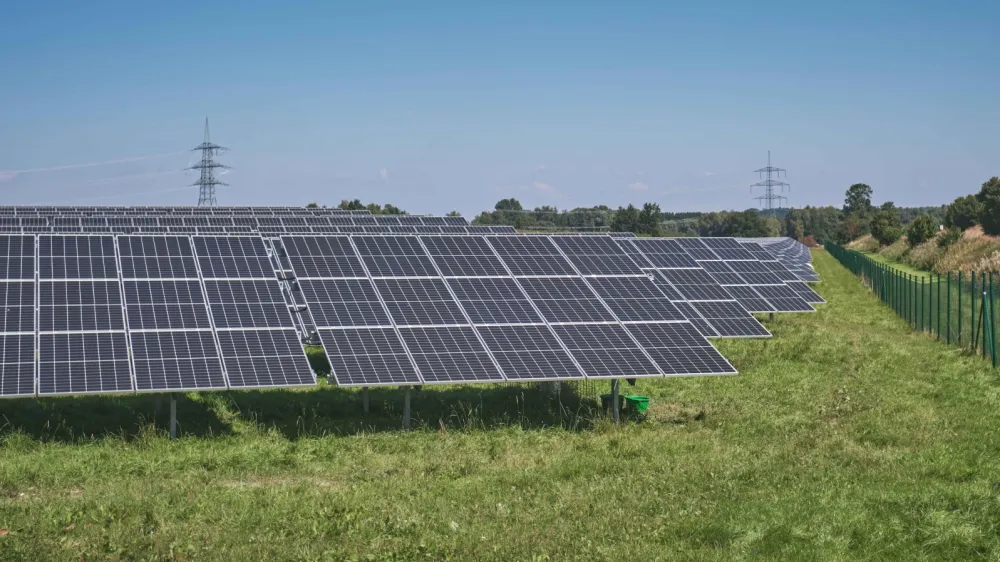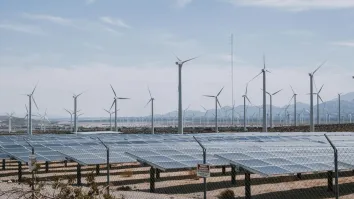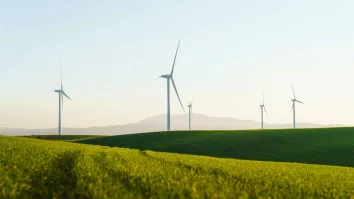Going beyond the meter means going beyond consumer expectations
By Peter HopperWhy your customers might not be the best guide to the future.
Steve Jobs once said, "You can't just ask customers what they want and then try to give that to them. By the time you get it built, they'll want something new."
So often when markets are confronted with the potential of disruptive technology it takes more than a conversation with customers to determine the priorities. It requires looking into the latent needs, the actions and choices people would love to make but don't have the opportunity to do so.
For power utilities the world over the model for the future supply of electricity has never looked so challenging. The traditional model of consolidated and centralised generation, controlled and restricted means of transmission and distribution against a backdrop of constantly increasing electricity demand is under threat.
The 2015 World Energy Outlook published by the International Energy Agency paints potential scenarios of restricted global growth in electricity generation over the next 30 years. Policies targeted to restrict CO2 emissions and limit global warming to +2 degrees show the growth in electricity generation dropping to a CAGR of 1.5% compared to a historical average of 3.4% between 1980 to today.
Achieving this isn't dependant on restricting the generation capacity but by the combined efforts of many consuming sectors to reduce demand through greater efficiency.
The same report outlines Industry will still be the top consumer of electricity in 2040 at 38%, with residential at 25%, and Commercial and Institutional consumers at 18%. Industrial, Residential, and Commercial consumers will still need the functional utility of electricity but will become increasingly adept at generating, supplying, and consuming it, with or without the involvement of the incumbent Utility suppliers.
The IEA estimates about 50% of the needed reduction will come from tighter energy efficiency measures in Industry and more efficient appliances in commercial and residential environments. Beyond that "end use efficiency", which is at best vaguely defined, will need to play a role.
It won't be enough to ask consumers what they need, they won't know and they won't be able to say but they will know it when they see it.
The Electric Power Research Institute published a technical report back in 2011 that estimated that in the US alone the advent of Smart Grid could generate economic potential of between US$1,300 billion and US$2,000 billion over the next 30 years, in Consumer markets with smart metering, Plug-in Hybrid Vehicles, Smart equipment, and Demand and Energy Management.
For the technology industry the potential lies in integrated communications, broadband over power lines, communications software and new protocols such as Zigbee. For the power industry, the opportunity is in applications such as Energy Storage, Distributed Generation, Renewable Generation, and Energy Efficiency.
There is no in-built entitlement for existing Power Utilities to be able to capture this value. New entrants, sometimes enabled by big data-driven insight, can bring new solutions and alternatives to consumers with or without the involvement of the incumbent Power Utilities.
Appealing to the latent needs of consumers for participation in the generation and use of electricity, increased security and reliability and efficiency will become the norm.
The Internet of Things, or Industry 4.0 as it is sometimes called, allows Industrial consumers to understand with increased insight how energy is consumed, to then design Smart Buildings to make optimal use of efficient operation procedures to restrict energy usage.
Consumers wanting more autonomy in the generation and storage of energy will increasingly be able to take control of their own energy needs with Distributed Energy Resources (DER) becoming increasingly common. Twenty-one percent (21%) of all new capacity added in the US between 2010 and 2013 was DER.
But being too quick can create a "bleeding edge" until differentiation emerges from what is truly valued and what is hype. Careful planning does not remove uncertainty but it can create a flexible and agile company, clearly in touch with the potential value creation and the spread of risk involved.
Smart Grid Primary Needs Analysis
Source: SAIC

Around the Asia region what is regarded as essential in each country will vary too. This recent study by SAIC regarding the primary needs being addressed by the introduction of Smart Grid shows the introduction in China and India helping ease constraints on growth, while South Korea and Australia reflect similar priority profiles to European countries.
To reach value beyond the meter requires a leap beyond conventional thinking and an engagement with the aspiration of consumers. Experimentation and a willingness to embrace new business models will determine which Power Utilities will be successful and which will be reduced to low margin commodity supply.
It goes beyond collecting mountains of big data in the hope of revealing hidden insight to the definition of creative, yet do-able future orientated alternatives and carefully planning what critical decisions need to be taken and when.
Being too quick can create a "bleeding edge" until differentiation emerges from what is truly valued and what is hype. Careful planning does not remove uncertainty but it can create a flexible and agile company, clearly in touch with the potential value creation and the spread of risk involved.




















 Advertise
Advertise






